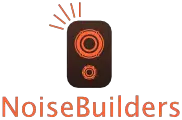Recording a guitar can be a real challenge. There are many processes and aspects to recording any instrument, and recording a guitar can be one of the most challenging. If you are struggling to get a decent guitar recording, there are usually ways to fix this.
Guitar recordings may sound bad for various reasons, including poor quality equipment, bad guitar playing, incorrect recording settings, or even using the wrong equipment. Correcting all of these elements of the recording process will drastically improve the way your recordings sound.
Recording a guitar well takes precision in every aspect of the process. This does not have to be a struggle. All it takes is some practice, the correct equipment, playing skills, and time. Let us look more closely at a few of the reasons why guitar recordings sound bad.
Reasons Why Guitar Recordings May Sound Bad
Poor quality or bad-sounding guitar recording is usually caused by the same factors. The process of recording a guitar can be complicated, and it can be difficult to draw a good sound from the recording.
The main reasons for bad-sounding guitar recordings are usually a lack of recording skill, poor guitar playing techniques, using incorrect equipment or equipment settings, using poor quality equipment, or simply a lack of post-processing such as mixing or editing.
A bad-sounding guitar recording is usually the result of one or all of these issues, and resolving them will drastically improve the sound of future recordings.
Let’s look at each of these recording issues and why many guitar recordings sound so bad.
Poor Quality Equipment
One of the main reasons why a guitar recording may sound bad is due to the lack of good quality equipment.
It is vital to have equipment that is conducive to capturing good quality audio. If the equipment that you are using can not make clear audio recordings, the recording will never sound as good as you would like it to.
Poor quality microphones and bad cables are the most common examples of poor quality recording equipment.
If the recording equipment that you are using cannot produce a good quality audio recording, the only way to improve the sound of your guitar recordings is to invest in better quality equipment.
This is also true for the guitar that you are using. Poor quality guitars tend to sound bad, but better instruments are capable of producing better recordings.
The recording software that is used should also be of good quality. There are plenty of inexpensive recording programs that are capable of capturing world-class guitar recordings.
Incorrect Equipment
Another culprit of a bad-sounding guitar recording is often the using the incorrect equipment for recording a guitar.
An electric guitar should not be recorded by plugging directly into the microphone port of a computer, nor can it be recorded well without the use of an audio interface.
An audio interface boosts the line signal of an electric guitar to a level that can be used well by a recording program. Without this, the audio of the guitar will sound very week, flat, lifeless, and often very scratchy or distorted.
Acoustic guitars often sound better when they are recorded by using a microphone rather than using built-in pickups if they are present.
The microphone that is used should be of decent quality and able to capture the full sound f the acoustic guitar and run through an audio interface or a microphone preamp for the best quality recording.
Without using the correct equipment, it is extremely challenging to capture a good quality guitar recording.
Poor Guitar Playing
There is a saying common in the music industry that is often used by producers and audio engineers that states, “garbage in, garbage out.”
This may seem harsh, but it is impossible to capture a good-sounding from bad guitar playing. If the playing that is being recorded does not sound good, then the recording will not sound good. It really is that simple.
Capturing a good-sounding guitar recording requires good-sounding guitar playing. This includes timing, chord changes, accuracy, technique, tone, and overall feel of the playing.
Incorrect Recording Settings
Not knowing how to properly set up and use the equipment that is used for recording, or if the settings on the equipment or the recording software are not correctly used.
The settings that are used on the recording equipment, such as the audio interface or the settings on the microphone, if it has any, are just as important as the settings that are used in the recording software.
This includes all gain settings, volume level settings including input and output levels, as well as all addition of effects like delay, chorus, and reverb settings.
The settings on electric guitars are important as well. The volume and tone controls must be set for optimal tone, as what you hear through an amplifier will sound different when it is recorded.
Be sure that you understand all of the settings on all of your equipment and software to use it as it should be used and to produce the best quality and best sounding guitar recordings.
Lack Of Post-Processing
Another very important aspect of recording a guitar is the post-processing o the recording.
A raw guitar recording may not sound good, but with some editing, mixing, and mastering, it may improve depending on the quality of the guitar playing.
The recording software that is used for the recording is likely to have some tools that can be used to drastically improve the sound of a guitar recording.
These tools can make a bad-sounding guitar recording sound better.
Conclusion
Good quality and good-sounding guitar recordings are always made with the same recipe.
This recipe includes good guitar playing, good quality and well-functioning recording equipment, good recording techniques, understanding the equipment and software that is used, and good post-production.
Mastering all of these aspects of recording a guitar will ensure that all of your recordings sound as good as they can, and every recording will turn out great!

